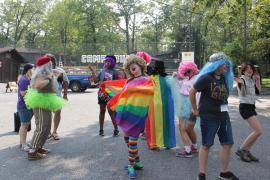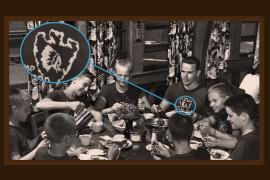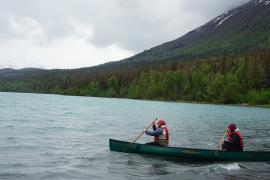In the last 10 years, we’ve seen a growth in the awareness of how camps are cultural appropriating Native American/Indigenous communities. Is it appropriation or appreciation?
Many camps will claim it’s appreciation: “it’s been a part of our camp history/tradition from the very beginning”; “we see nothing wrong with what we are doing — we are appreciating them.”
All of this stems from a Western/settlers’ worldview of taming the Wild West through manifest destiny — a worldview that promotes Eurocentrism as the paradigm for all and that history begins with this narrative of colonizing a new land. The Native Americans or Indigenous peoples were seen as savages, heathens, and less than, with no history or knowledge of governance or have the ability to speak English. Many saw them as children of the wildness that needed guidance and religion to assimilate them within Western culture. This narrative is fed by governmental policies of genocide toward Native American and Indigenous peoples to take their lands, culture, and identity away from them for Western progress.
Resident camps in those early years provided the elites the opportunity to send their boys to learn how to be men, and, in the process, incorporated Native American or Indigenous peoples culture to strengthen and empower those boys. As time progresses, military themes and practices were being introduced into camps to create young soldiers and the narrative of appropriation started to gain traction to become the norm at camps. Appropriation evolved into becoming traditions at camp, when the Native American/Indigenous populations were eradicated through genocidal policies to 16,000 in the early 1900s from 18 million at the time of contact; an almost erasure of an entire group of people. Using a peoples’ culture to financially benefit a camp by mocking or misrepresenting their clothing, names, artifacts as camp traditions is appropriation not appreciation.
We believe that the use of Native American themes began in the early days of organized camping out of good motives. No one set out to offend Native Americans — the early founders in the camp profession were attempting to honor Native Americans. However, in today's society, we must acknowledge that cultural appropriation — no matter how it began — has caused generational trauma to Native Americans.
As a part of their DEI Initiative, ACA created the Indigenous Peoples Task Force: a group of Native American/Indigenous professionals and allies in the camping movement to provide guidance, awareness, and engagement strategies to help camps overcome cultural appropriation of Native American/Indigenous peoples. The task force provides a space for camp leadership, alumni, and staff to ask questions and seek guidance to make corrections to their camp practices and traditions that are harmful to Native American/Indigenous peoples.
Complimentary Recorded Webinar
In honor and acknowledgment of Indigenous Peoples Heritage Month, ACA is granting complimentary access to the recorded webinar, Camp Culture or Cultural Appropriation? Identifying Indigenous Erasure and Stereotypes to Reduce Harm featuring Cheryl Ellenwood, PhD. This webinar will be available to view at no cost during the month of November.
Additional Resources on Cultural Appropriation
- Advocacy and Policymaking through Understanding, Camping Magazine, January 2024
- Indigenous Appropriation Assessment Tool, Maine Summer Camps, December 2023
- Keep the Good, Learn from the Bad: Moving Beyond Cultural Appropriation, ACA blog, June 2023
- Would You Recognize Cultural Appropriation, Camping Magazine, May 2023
- We Are Learning Together: Taking Steps Away Native Cultural Appropriation, Camping Magazine, January 2023
- Health and Science Programs: Amplifying Indigenous Cultures at Camp, CampWire podcast, April 2021
- Cultural Appropriation at Camp: We Need to Stop Doing Harm, CampWire podcast, January 2021
- Indigenous Instructional Programming for Camp Professionals, Camping Magazine, March 2018
- Respectful Approaches – Indigenous Culture Competency and Camp, Camping Magazine, September 2016
Contact the Indigenous Peoples Task Force with questions:
- Les Peters, Yakama Nation – Chair
- Vance Gilmore, Quapaw Nation – Member
Les Peters has over 21 years of experience in youth development and 19 years in outdoor education and digital media arts technology. He was born and raised on the Umatilla & Yakama Reservation, where is learned his traditional cultural ways. Les is the executive director of the Community Development YMCA in Long Beach, California. Les provides diversity training and develops creative, academic, and social skills in an outdoor setting. He also teaches at CSULB in the American Indian Studies Dept. and College of Art.
Vance Gilmore is camp director emeritus at Camp John Marc, founder of Medical Disability Kindred, Pioneer of Camping 2012, past National Board member, past conference chairman (Dallas, 1999), past president of the Texas Section, recipient of several Section and National Awards culminating in the National Distinguished Service Award 2022, current committee member of the Indigenous Peoples Task Force, enrolled member of the Quapaw Nation, and current committee member of the Constitution Committee Quapaw Nation.
The views and opinions expressed by contributors are their own and do not necessarily reflect the views of the American Camp Association or ACA employees.




